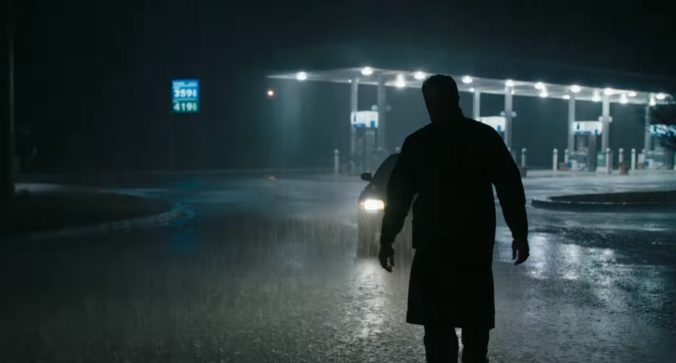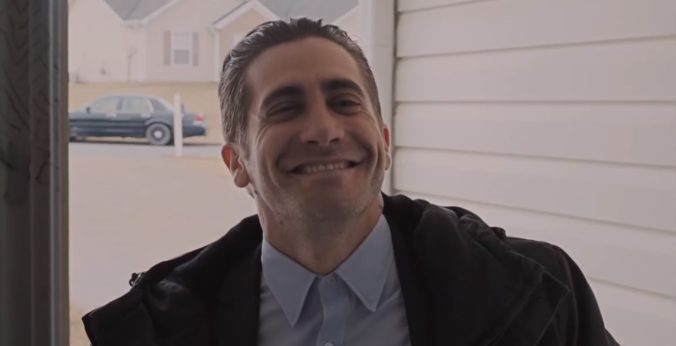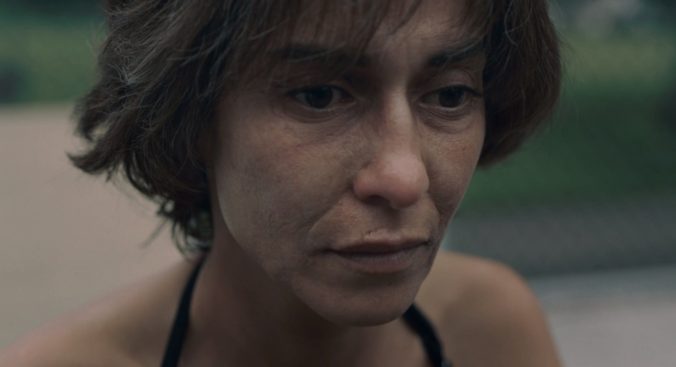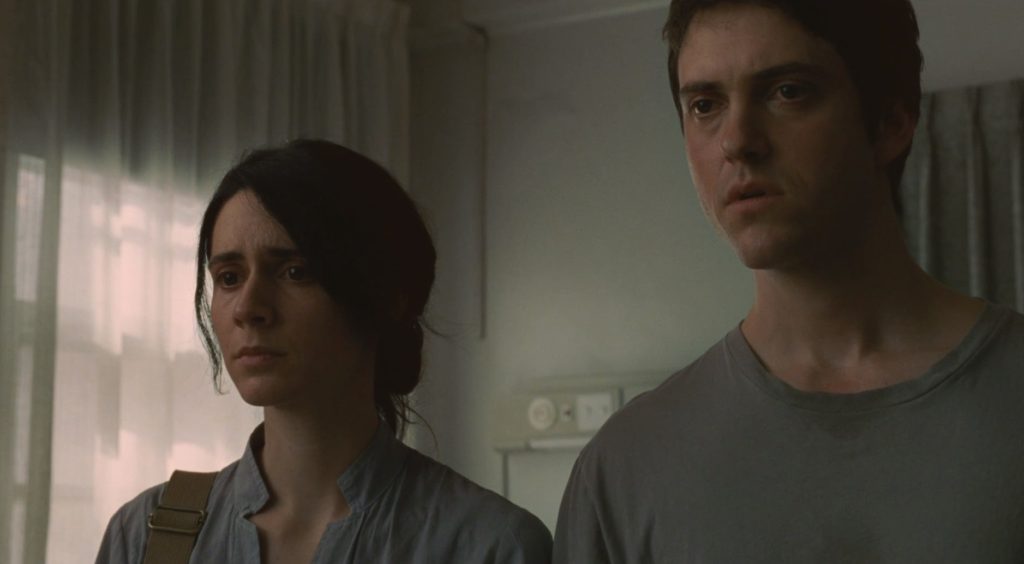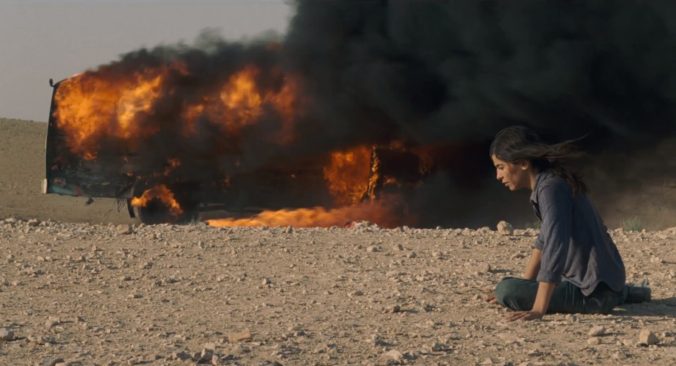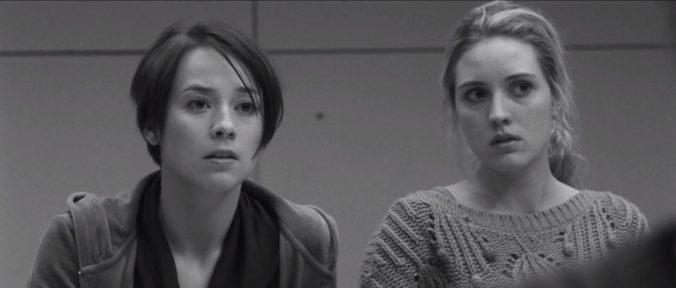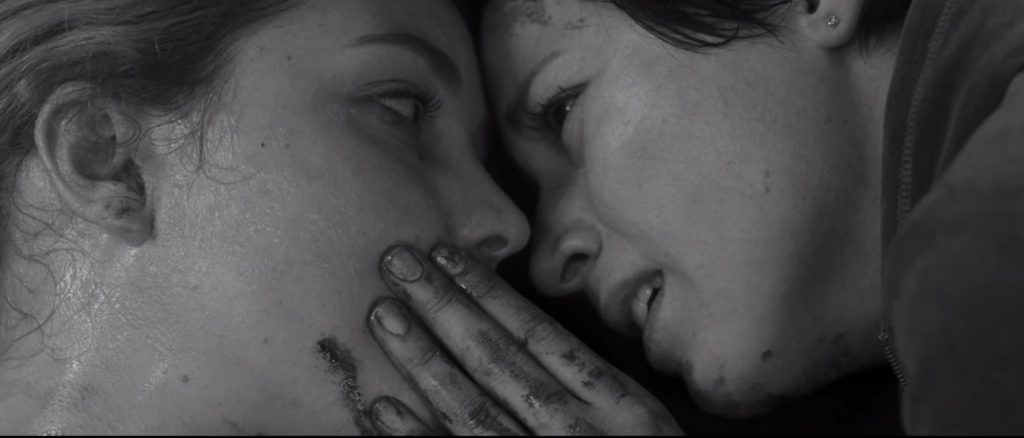For each movie in the “Denis 2049” series, Taylor and Sam will sit down and bounce some thoughts off each other, off-mic. Their brilliant minds will unleash many words. Make of them what you will. This time: “Prisoners.”
Taylor: Okay, let’s think about this. How could we possibly describe what it’s like to go through the physically, mentally, emotionally and existentially draining experience that is watching “Prisoners”?
Hmm…
So, imagine you’re lying on a cold tile floor. You’re basically naked. It’s wintertime. Every minute seems colder than the one before. Then, someone begins placing ice cubes on your body. One on a toe, one on an arm, one on your face. On and on until you feel like your body may never be able to warm back up ever again.
That’s what “Prisoners” feels like to me. With each scene, I get colder and colder and wonder whether I’ll be able to love or feel anything ever again.
And yet.
There is something very compelling and human about “Prisoners.” Something that keeps me glued to my seat and makes me want to revisit the movie time and again. What the hell is that something, Sam? I can’t figure it out.
Sam: I took an ice bath once to break a fever. I realize now that I could’ve just watched “Prisoners.” It’s chilling and stressful and bleak and depressing and ice-mother-freakin’ cold, but you know what, Taylor?
It’s Denis’ most fun movie. That’s why I keep going back to it.
Sure, if you go into this movie expecting a feel-good romp with Paul Dano driving around in an RV and hanging out with some kids, you’re gonna be disappointed. But Dillenueve’s ethical rollercoaster ends up making me more excited from the ride than sick from it.
This movie could have gone in a couple directions with a premise this dark when you think about it. It could have taken kidnapping and put it in its cold realism that it’s inexplicable and often unsolved, but instead, it added resolution and twists and drama. It hit the same fork in the road that “Polytechnique” did and took the direction of snakes and puzzles instead of harsh reality. I’m grateful for that because I don’t think I could sit through a black-and-white docudrama about Hugh Jackman never finding his kid. It would be too much.
I like the imagery you present about how chilling this movie is, but my question is this. What’s the coldest part?
Some nominations (feel free to add your own):
- The climate in upstate Pennsylvania
- The sudden realization that your child is missing
- Gyllenhaal’s haircut
- Terrence Howard on the trumpet
Taylor: Yeah, you forgot a few.
- The kids going outside without their jacket (pretty cold)
- Gyllenhaal outside (looked cold)
- The window left open while Mom tries to sleep (probably cold)
- Drinking Holly Hunter’s poison juice as your kid slowly dies somewhere nearby (the coldest)
For real, though, Terrence Howard is rough on the trumpet. It really shattered my “Empire”-based reality to see Lucius Lyon hop on the trumpet and sound terrible. My whole world makes no sense now. I don’t know what to believe.
The thing I keep thinking about after watching this movie again – this was the second time I’ve seen it – is how well-calibrated it is. The whole thing holds together so perfectly while also opening up so many doors in such compelling, thoughtful ways. It gives you so much to think about thematically that I find myself wanting to go back and revisit it again for some reason. (Am I crazy?)
At this point in our series, I’m pretty comfortable saying this is Villeneuve’s best movie. Everything peaked here. And I’m excited for what’s next. I feel like it’s just getting better and better.
I guess you could say I’m … a prisoner to Denis.
Sam: This was Denis’ best and biggest. The gang came out to play. Sure, Terrence Howard might have learned how to hold a trumpet seconds before walking on to the set, but Melissa Leo made me believe that “raging a war against God” is a legitimate character motivation and Maria Bello showed that she could lie on a bed and be sad!
Seriously, this whole thing is so well-calibrated. It knows what to do with its best characters and is able to be puzzling without being too Nolan-y. It squeezes in a mystery thriller and an after-school special into a small two-and-a-half-hour window. Even Denis’ on-the-nose tendencies worked this time. Jackman talking to his kid about being prepared for anything minutes before “anything” happens felt more chilling and ominous than obvious and annoying. Gyllenhaal’s character sitting alone in a Chinese restaurant when it is clearly Christmas talking about how he needs a personal life was overt but felt expedient and necessary to the story.
I’m a fan of this one.
Who won this movie, Taylor? Is it one of the heavyweights? Is it the police chief who never leaves his desk or stands up? Is it actually just a three-horse race between Jackman, Gyllenhaal and Dano?
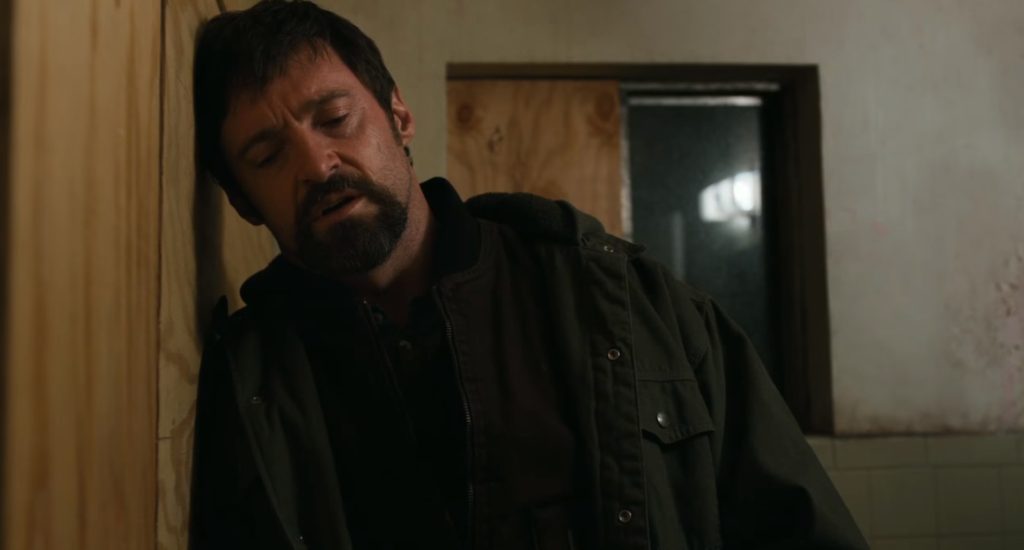
Taylor: There’s no such thing as winning in a movie like “Prisoners” really. I’d say simply surviving is winning.
So…. I guess everybody other than Melissa Leo and that creepy guy who painted the interrogation room walls with his brains won? I don’t know. Who knows?
Here’s what I know: This movie is super good. That’s a fact.
However, I recently saw a clickbaiter (I fell for it, obviously) who put out a ranking of all of Denis Villeneuve’s movies. This “critic” had “Prisoners” ranked seventh. Seventh! I won’t dignify these rankings or this author with a name or a link, but SEVENTH! THEY HAD “PRISONERS” SEVENTH!!!
This is such an obnoxiously bad opinion that I don’t even know where to start. Maybe he just wanted people to think, “Wow, what a bold take! He must know something I don’t!” If I was younger, I might have fallen for this, but facts are facts. If you think “Prisoners” is Denis’ seventh-best movie, you should not be allowed into the theater for “Blade Runner 2049.”
/end of rant
Sam: If Melissa Leo and her whack-ass husband kidnapped me, pumped me with some psychedelic Welch’s grape juice, put me in a basement, and said, “Here you go, finish this book of puzzles and you can go home,” and the last page said, “Explain how ‘Prisoners’ is Denis’ seventh-best movie,” I’d happily rot under that 1972 Chevy Vega.
And that’s really what “Prisoners” is about, isn’t it?
Taylor: Look, this movie is about as hard to talk about as it is to watch. So I’m done here. Be nice to your puppies, and don’t steal children’s clothing.
I think I’m going to lie down for a while.
Sam: Denis 2049 Power Rankings after five:
- “Prisoners”
- “Polytechnique”
- “Incendies”
- “Aug. 32nd”
- “Maelstrom”
Next up: “Enemy.”
